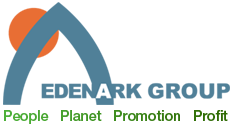There is opportunity for businesses and buildings in NYC to make more money by getting ahead of Local Law 97 and managing it properly.
Most businesses and building owners are going to see the Local Law 97 de-carbonization requirements as nothing more than profit-eating CapEx.
But some will realize this as an opportunity to turn lemons into lemonade by 1) getting ahead of the curve, 2) keeping costs low, and 3) taking advantage of consumer demand.
What we know is:
– The #1 problem all businesses/buildings have is finding a way to stand out
– Yet, 87% of consumers want their vendors/suppliers/buildings to be certified sustainable
– And 71% of consumers will move their business to a certified sustainable company
– Certified sustainable companies/buildings under our standard enjoy increased revenues, profits and valuation
– One of the biggest issues all big companies are focused on is becoming ESG compliant
– To do so, they need vendors/suppliers/landlords that are ESG-compliant
– Over the near term, this is a powerful competitive differentiation tool for vendors
– Over the longer term, all organizations will need to be ESG-compliant
– NYC buildings are mostly steam-driven
- It is nearly impossible for a NYC building to meet Local Law 97 without using carbon offsets and/or RECs
– Fortunately, NYC allows carbon offsets and RECs to be used to help satisfy Local Law 97
– This is a way to inexpensively ‘buy time’ on your CapEx
– But it needs to be packaged with a full solution
– Edenark Group helps a business/building satisfy all the above
Net, the building/business gains:
– A low-cost way to satisfy Local Law 97 and extend the CapEx work timeline
– A way to inexpensively become ESG compliant as part of the Local Law 97 process
– A way to inexpensively become certified sustainable as part of the Local Law 97 process
– A low-cost way to use certification and ESG compliance to drive revenue and valuation
